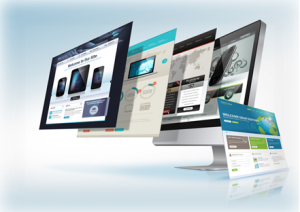Choosing the right firm for your web design project is a critical step in your path to success. A good partner will foster a creative and efficient process that will ultimately lead to accomplishing the goals you’ve established for the project. How do you increase your chances of choosing the right firm? Over the next few weeks, I’ll be sharing our thoughts in a six step approach.
Step One: What does the web design firm’s own website look like?
- Ease of use – Is it easy to navigate the site and uncover your desired information. When you click on links, do they go where you would expect them to go? Is it easy to tell what section of the site you’re in, and is it easy to get to another section of the site?
- Design – Is the design clean, uncluttered and attractive to the eye?
- Flash or CSS movement – Is it tasteful and effective or distracting and maybe even irritating?
- Purpose – Is there a clear call to action?
- Information hierarchy – When you look at the homepage, is it clear that some information is more important than other information, or does it all just blend together?
- Appropriateness of design – Look through the Design Firm’s portfolio. Do all the websites look similar, or are they clearly custom tailored to the target market. For example, a site selling garden equipment should have a very different design ethos than one selling high-end sports cars.
Step Two: How is the web design firm’s own website coded?
To be effective, a compelling design must be coupled with valid, standards-based markup language. Advantages of valid code include:
- Your website will open and load much faster due to reduced file size.
- Your website will look good across all platforms (Mac, PC, etc.) and all browsers (Internet Explorer, Firefox, etc.).
- Your website will be easier to maintain (because predictable things happen when we modify code vs. unpredictable), resulting in reduced costs.
- Your website can evolve as standards evolve; it won’t become obsolete due to the use of proprietary code.
- Your website will incorporate accessibility so that the millions of people affected by disabilities will be able to view and use your content.
- Your website will be viewable and usable by all the different user-agents of the Web (browsers, cell phones, PDAs, screen readers for the blind, and search bots like Google).
- Your website will communicate in a way that is understood by everyone, regardless of what they are using to access the Internet.
How do you know if the code is valid? Go here to validate any website including ours: http://validator.w3.org/.
Step Three: A minimum of three contacts
When I conducted training seminars on how to recruit, hire and develop management trainees at a fortune 500 company, I insisted that all hiring managers have a minimum of three contacts with the candidate before extending a job offer. During the first interview, you always see them at their absolute best. By the third contact, you begin to see them as they truly are. You also have a chance to look for trends. Are they consistently on time, or perhaps consistently a bit late? Do they articulate their point of view effectively or is it a struggle to follow their thought pattern? The same approach is appropriate when choosing a web agency to partner with. By the third contact, you’ll begin to see them as they truly are.
Step Four: Referrals
Get three to five referrals of current clients or recent projects. Ask:
- How were they to work with?
- Would you use them again?
- Did they deliver on time?
- Did they deliver on budget?
- What was your biggest good surprise about working with them?
- What was your biggest disappointment?
- Is there anything else I should know that I have not asked you?
Step Five: Firm Stability
Sadly, we have far too many people come to us after the firm that designed and developed the site had gone out of business. A few lost entire websites, almost all lost asset files. Ask:
- How long have you been in business?
- Who is the owner, and how long have they owned it?
- How many employees do you have, and how long have they been with you?
Step Six: Firm Capability
How is the firm structured, and what is the education and experience of those that will be working on my project? Ask:
- Who will manage the project, and what is their background and experience level?
- Who will do the design work, and what is their education and work experience?
- Who will do the coding, and what is their education and experience?
- Where are your designers based (U.S. or Overseas?)
- Where are your developers based (U.S. or Overseas?)
The skill sets for each task above are vastly different. If you learn that the same person handles more than one of the above tasks, proceed with extreme caution. If they use “Jack of all Trades” employees to keep costs down, the end product will reflect that.

